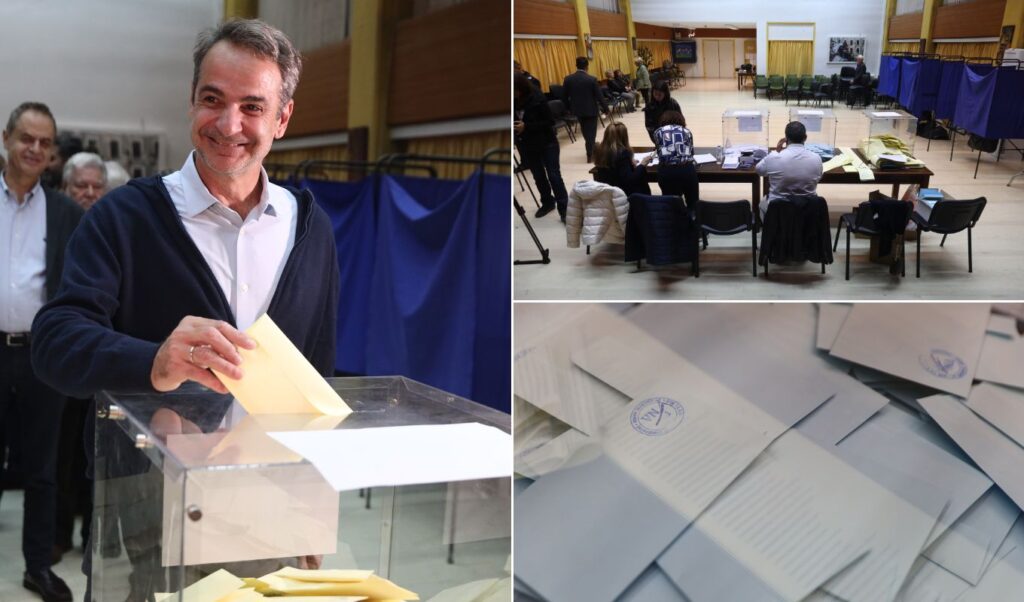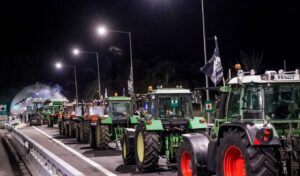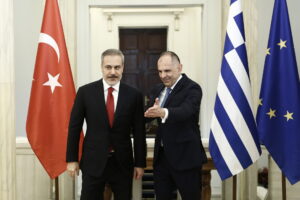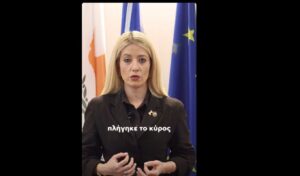The Maximos Mansion views yesterday’s internal party elections as a critical “injection” of unity for the party base and the broader audience of New Democracy. Through this process, 2,500 party officials were elected to positions as presidents and members of the councils of 59 Regional Electoral Committees and 330 Municipal Local Organizations across the country. At the government headquarters and the central offices on Piraeus Street, the process is evaluated not merely as an institutional exercise of intra-party democracy, but as confirmation of what they characterize as a “common acknowledgment” in the political system: that New Democracy continues to be the only faction maintaining solid cohesion, organizational continuity, and broad social influence.
Beyond electing party organs at the grassroots level, the electoral process also produced 1,000 congress delegates who will participate in New Democracy’s next Regular Congress, scheduled for spring 2026. These delegates are considered particularly important for preparing the next phase of party planning, as they will form the core of discussions about the party’s strategic and organizational direction.
Voter participation was the central element of optimism for the government team. “The ballot boxes were filled,” the prime minister commented characteristically from the polling station where he exercised his voting right, accompanied by his son Constantine. In a subsequent statement, he expressed particular satisfaction with the 122,000 citizens who participated in the process—a number that, as he emphasized, includes many new participants. The prime minister did not fail to address a public thank-you message to everyone who went to the polls, underlining that the massive participation constitutes a strong vote of confidence in the party.
The “numbers” from the internal elections are, as noted by party sources, particularly revealing of the governing party’s dynamics. The 122,546 active voters—a number increased compared to the 2021 internal elections—resulted from new registrations and re-registrations, including a significant number of new members. This trend is interpreted as an indication of renewal and organizational expansion, an element that Maximos strongly promotes as a response to discussions about social fatigue with the governing party.
However, the picture of broad participation was overshadowed by a phenomenon causing concern among party leadership: in several areas of the country, there was no turnout or electoral process at all. As a result, candidates corresponding to electable positions were automatically declared elected without the relevant process taking place. This phenomenon was recorded in a series of electoral regions, including Arcadia, Boeotia, Evrytania, Zakynthos, Karditsa, Kefalonia, Kilkis, Kozani, Corinth, Lasithi, Lefkada, Messinia, Pella, Rethymno, Serres, Phocis, and Chania. A similar picture emerged in local organizations of major urban centers, such as the B3 Southern Athens Sector (Tavros, Moschato, Glyfada, Kaisariani, Elliniko-Argyroupoli), the A’ Piraeus organizations (Piraeus Center, Kaminia, Agia Sophia), as well as local organizations in the Dodecanese (Kalymnos, Leros, Karpathos, Tilos, Astypalea) and B’ Thessaloniki (Lagadas, Oraiokastro, Koufalia, Chalkidona, Thermaikos, Thermi, Pylaia-Chortiatis, Volvi).
The fact that elections were not held in these cases, mainly due to zero participation, sparked discussions and internal party criticism. The criticisms heard from certain officials were mainly directed toward the secretary of New Democracy’s Political Committee, Kostas Skrekas. He is blamed for the “inactivity” of the party base that has affected specific local and regional organizations, with some speaking of indications of organizational fatigue or inadequate preparation for the upcoming electoral process.
Despite the criticisms and reservations, the government team maintains the assessment that the overall picture of the process politically strengthens New Democracy, offering it significant organizational capital ahead of the next major political and electoral confrontations.




